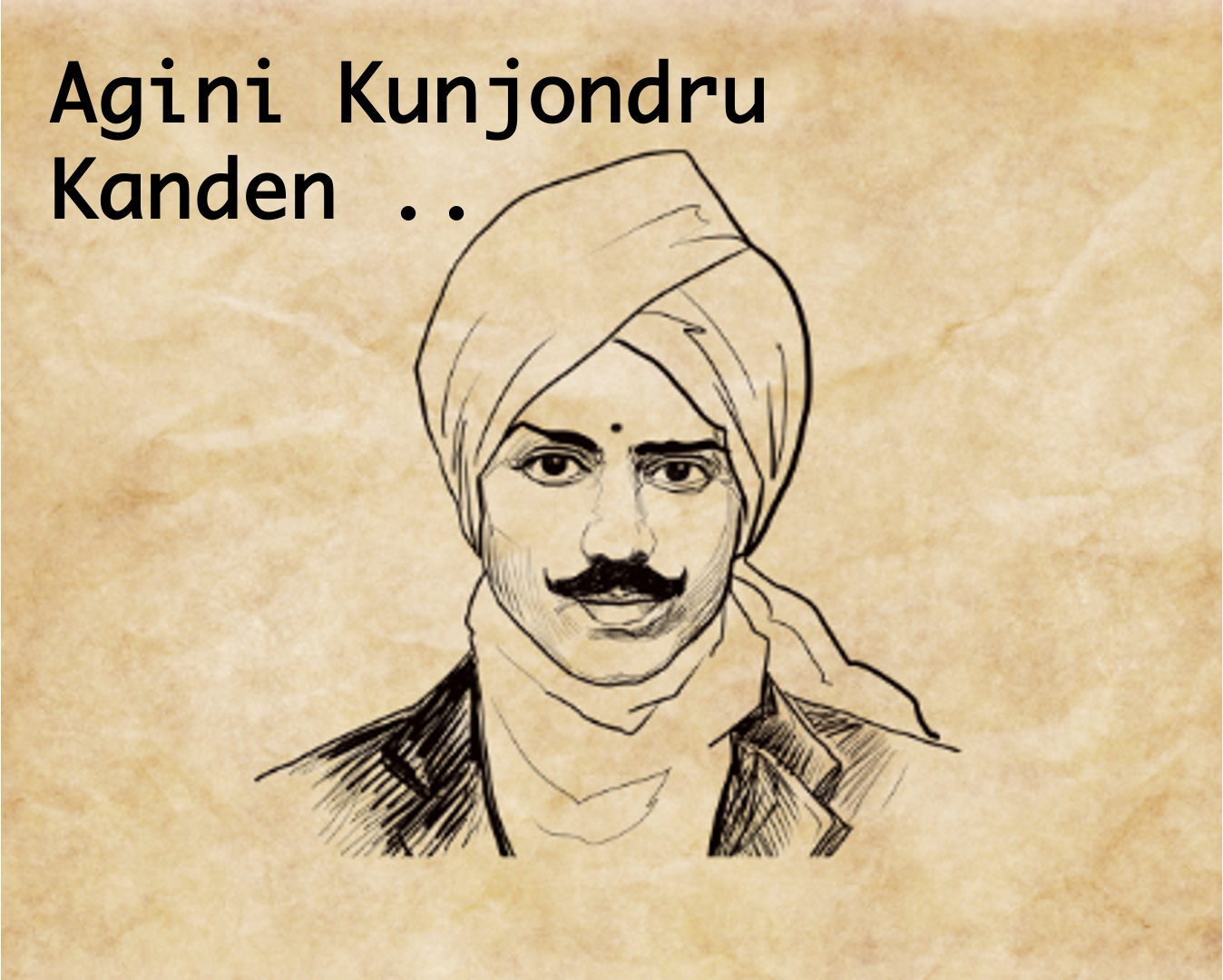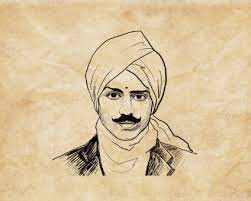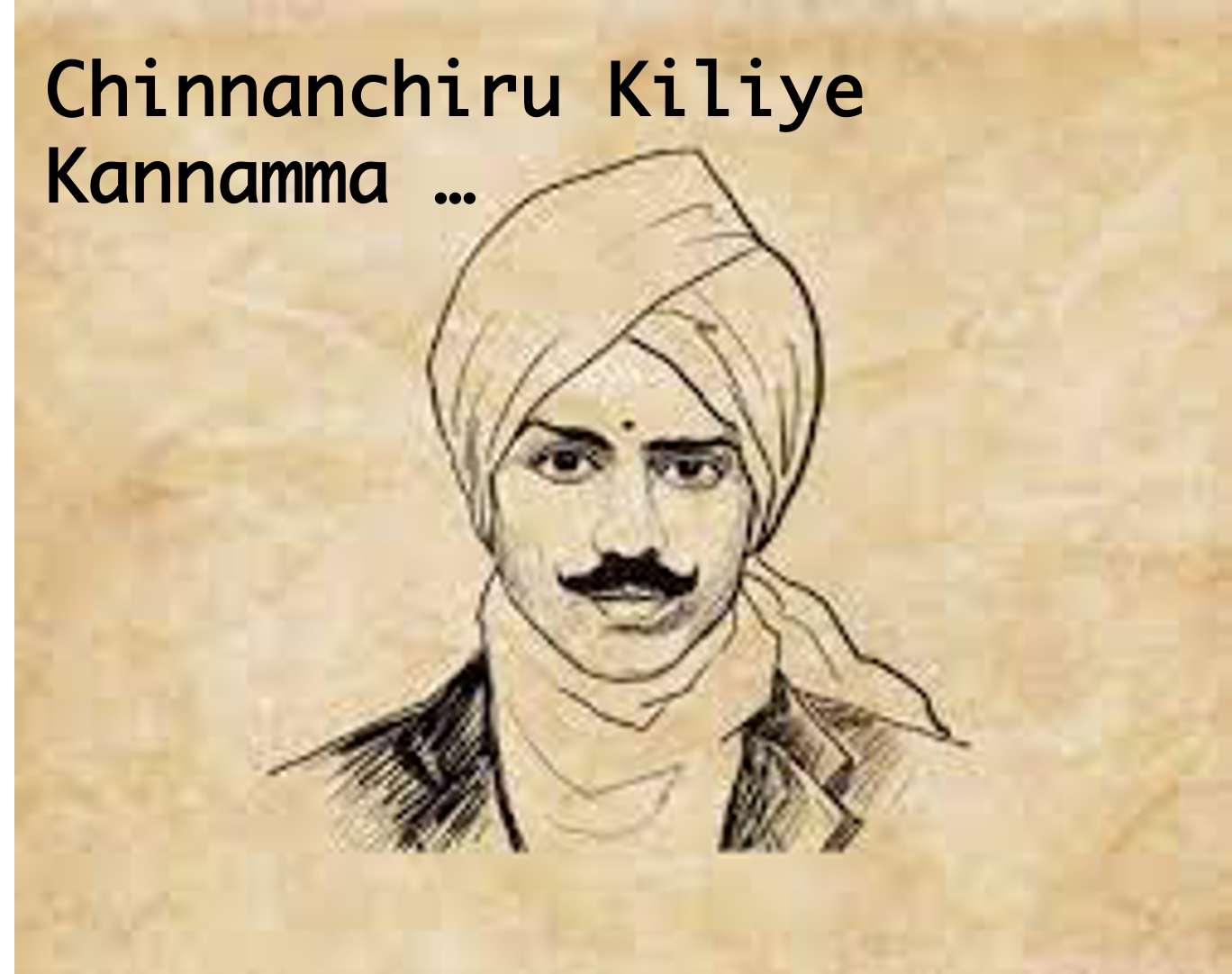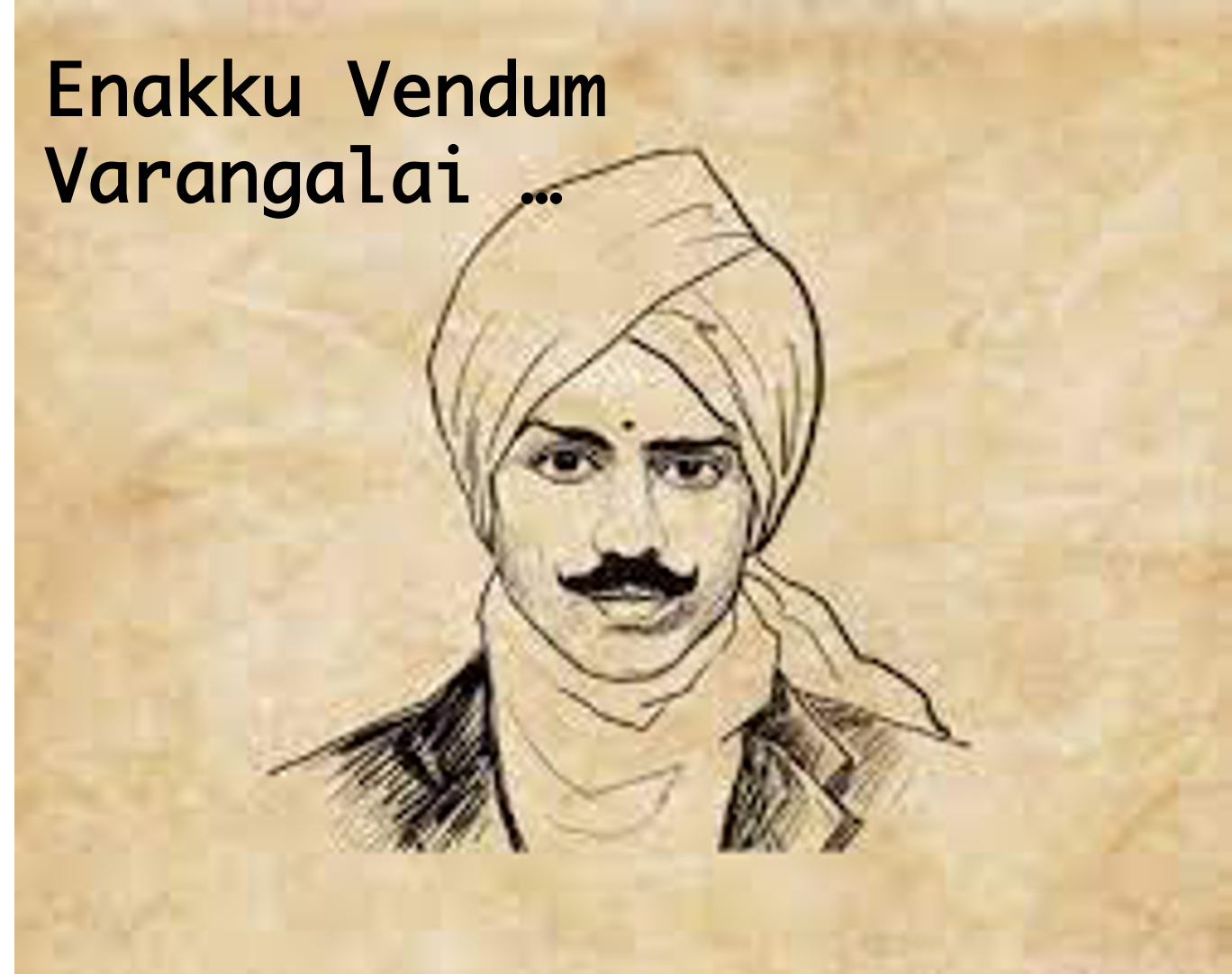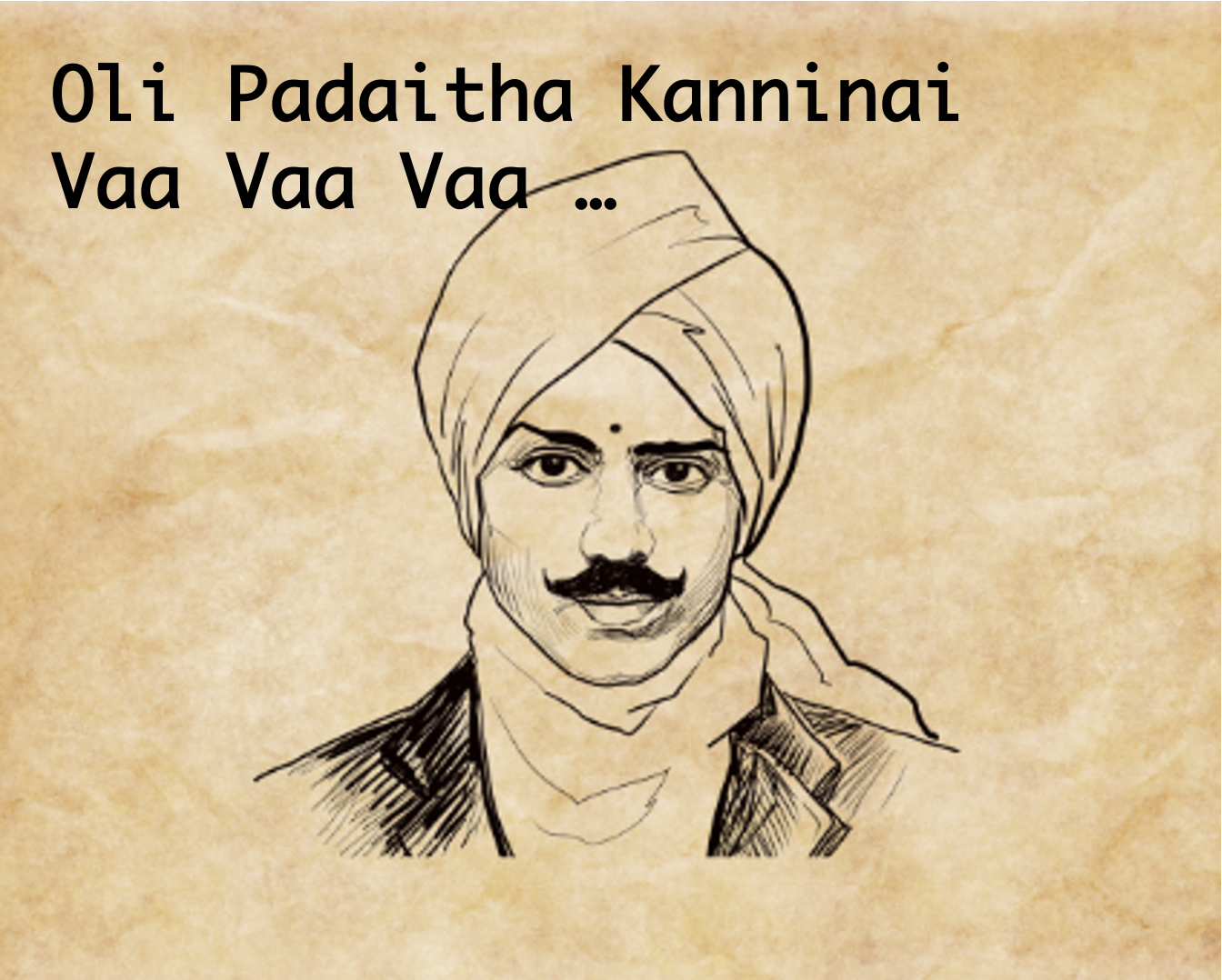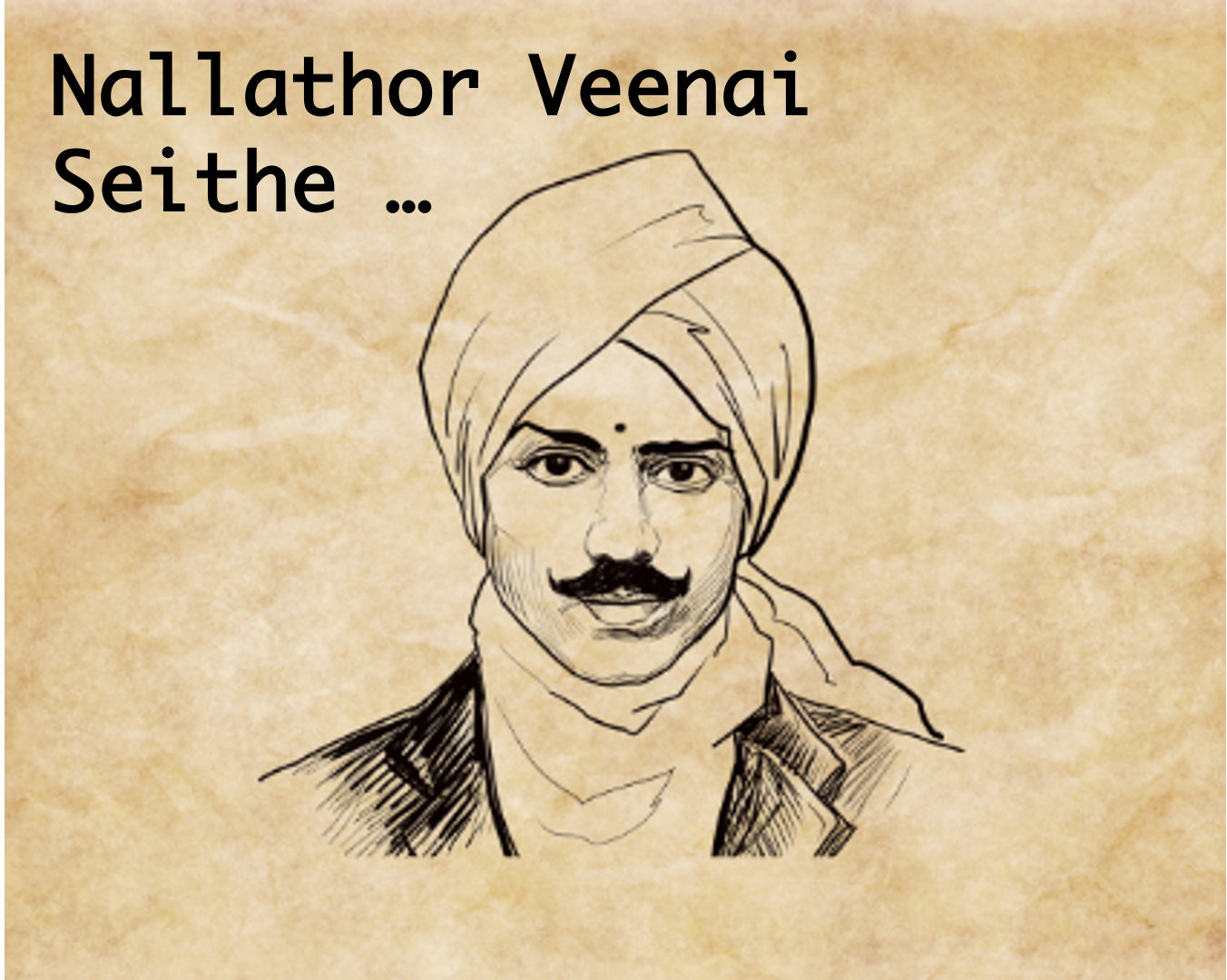AGINI KUNJONDRU KANDEN
This is one of the beautiful and most powerful verse by the Mahakavi Bharathiyaar. Though there could be a whole thesis on just the five lines written by him, I will try to contain myself with few lines about this. The verse ends with a tune which could be understood better if you could listen to the song rather than me describing with so many words.
The poet says, “I found a small flame and placed it in the hole in a tree. The whole forest burned and turned into ashes. Is there any difference in the ferocity of the fire whether it is young or mature?”
Up on analysis of the line, one can venture to say “Yes, there is a difference. The young flame starts up with vigor but only the mature one can sustain it for long. Then the young flame loses its separate identity and merges with the conflagration.”
Bharathi proclaimed that his job was to write poetry. In doing so he impregnated myriad thoughts in his poems – from devotion to social welfare to upliftment of women and the downtrodden to the mission of seeing the British off from India.
In the poem under consideration, he describes a simple incident which led to an enormous consequence – a small flame placed in a tree hole caused the destruction of the whole forest. To destroy a forest, a small flame is enough to grow to huge proportions and if it is left to spread. The implied message is that for any venture which requires a mental force, it does not matter whether the physical person is young or old.
Here agni kunju represents a nascent courageous thought. One flame in one tree can destroy a forest. Likewise even one person can be instrumental in spreading the message to a whole community. He was exhorting the youth to rise up against the British in the freedom struggle which in his time was led by senior leaders. He was advocating for the participation of young and daring citizens whose valor is no less than that of the leaders leading the struggle.
The deeper import in the song about fire is that Bharathi recognized the sacrifice and efforts of the senior patriots during the Independence movement in India. But he was also encouraging the youth whose energy is immense and their zeal could be no less than that of the senior patriots. the youth could throw so much energy into the movement.
The elements in Nature can be gentle as well as fierce. Take rain – it can be a nice drizzle in spring or a torrential downpour in the fall. Wind can be gentle wafting some nice fragrance or it can be a whirlwind or a tornado. Bharathi adds verbal rhythm to the lightning, the splashing waves of the sea, the thunder in the clouds and he wonders about these in the songs about Nature.
LYRICS
Agni Kunjondru Kandaen
Athai Angoru Kaatilor Ponthidai Vaithaen
Agni Kunjondru Kandaen
Athai Angoru Kaatilor Ponthidai Vaithaen
Agni Kunjondru Kandaen
Athai Angoru Kaatilor Ponthidai Vaithaen
Venthu Thaninthathu Kaadu
Venthu Thaninthathu Kaadu
Venthu Thaninthathu Kaadu
Thalal Veerathil Kunjendrum Moopendrum
Undo..
Thaththarigida Thaththarigida thiththom
Thaga Thaththaarigida thaththaarigida
thiththom
Thaththarigida Thaththarigida thiththom
Thaga Thaththaarigida thaththaarigida thiththom
Agni Kunjondru Kandaen
Athai Angoru Kaatilor Ponthidai Vaithaen
Vetti Adikuthu Minnal
Kadal Veerathirai Kondu Vinnai Idikuthu
Kotti Idikuthu Maegam
Koo Koovendru Vinai Kudai ithu Kaatru
ChattachadaChattachada Tatta
ChattachadaChattachada Tatta
Endru Thaalang Kotti Kanaikithu Vaanam
Agni Kunjondru Kandaen
Athai Angoru Kaatilor Ponthidai Vaithaen
Agni Kunjondru Kandaen
Athai Angoru Kaatilor Ponthidai Vaithaen
Agni Kunjondru Kandaen
Athai Angoru Kaatilor Ponthidai Vaithaen
Thaththarigida Thaththarigida thiththom
Thaththaarigida thaththaarigida thiththom
VIDEO SONG
TRANSLATION
I saw a spark of fire! (fresh open minded thought)
I saved it in a hollow in the forest! (Only old trees have burrows – refers to men with conservative and old fashioned thoughts)
the spark reduced the forest to ashes!
for the prowess of fire, is there a difference between a spark or an inferno ?
the lightening strikes and slashes,
the sea with the prowess of its waves batters the skies,
the clouds thunderously pour down,
the whooping winds rummage the skies with the sounds of “koo koo”
the skies play to the roaring rhythm of “satdachsada satdachsada tatdaa”
where did all this rain come from ?
